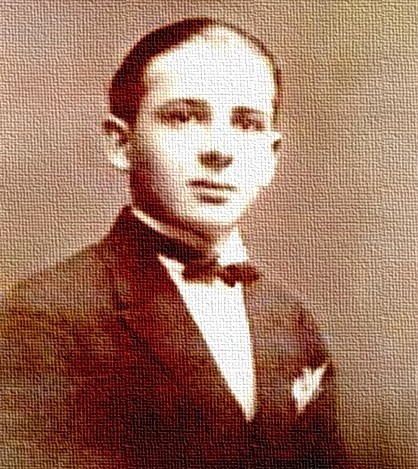 |
| Joseph Millar [Dodge Poetry Program] |
from
Joseph Millar’s Blue Rust:
Ode
to the Ear
This
one’s for you, winged skull-blossom
opening
into the world, for the gold post held
in
your fleshy lobe, for the ledges of blood
swollen
inward. Here’s
to
the whirling sounds of the wind
spilling
the dead crape-myrtle leaves
over
the hedgerow and garden.
I
heard the clock tower’s
thick
tones reach
into
the blue void of Sunday
where
I faltered, thinking of winter,
the
past with its sunset-rouged face,
its
décolletage and long opera gloves,
absinthe
and tap water, fireplace
and
roof gable, French doors
shedding
the rain.
Why
should it bring such comfort,
listening
to typing in the next room,
the
lost notes gathered and tended?
The
right ear faces up in the darkness,
here’s
to its fluids and delicate tympani,
here’s
to its waxes and hairs,
helpless
to close out this rhythmic tapping
it
listens and hears and believes.
Ocean
[excerpt]
.
. . What was the song she sang,
the
sea lion asleep on a rock
near
Point Reyes?
I
hear the deep halls of water
filling
up on the ebb
as
she turns over, sighing into the algae,
slides
back into the tide.
I
squatted still in the autumn sand
thinking
of red roe and black hair,
women
gone down into themselves,
funky,
brash,
croaking
and thrashing
eyes
staring blind as glass. . . .
Urban
Coyote
In
the green dream of spring
I
stretch myself out
letting
the gray mist hide me
shoving
my nose in the garbage pile
chewing
egg shells and cheese rinds.
I
swallow cellophane, I swallow cat hair,
butcher
paper stained dark with fish blood
and
run grinning through the blowsy woods
smelling
the riverbank’s plasma —
I
smell the barns and the city dump,
the
quail asleep in the tall grass.
In
the morning the doctors send over
my
lab results: triglycerides and cholesterol,
glucose
and prostate antigen,
diets
of cold fruit, nuts and water.
I
sign the mortgage papers,
I
read the bank statement,
I
pay the gas bill, I sweep the floor
then
in the marshy glycemic night
I
lick back the plush fur covering my lips,
I
steal whatever can fit in my mouth
under
the fat April moon.








